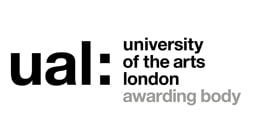
The steel framework for City of Wolverhampton College’s new city centre campus has been completed.
The new campus is part of phase two of City of Wolverhampton Council’s City Learning Quarter masterplan and is situated around the Old Hall Street and St George’s Parade area, incorporating a site on the corner of Garrick Street and Bilston Street where the former Faces nightclub building once stood. The development is also utilising the college’s existing Metro One building.
McLaughlin & Harvey have now moved onto the next stage of works – which includes floor decking installation and concrete pour on all levels, façade works and roofing – and remain on course to deliver the new state-of-the-art facility in time for the start of the 2025/26 academic year.
Alongside improved Adult Education Wolverhampton and Central Library facilities, the £61 million scheme – supported by Government funding – will establish new educational provision that will enhance skills and employment outcomes for residents across the city and wider region.
Speller Metcalfe is delivering the remaining phase two improvement works on Adult Education Wolverhampton’s Alan Garner Centre on Old Hall Street and the Grade II*-listed Central Library.
It follows the news last week that construction on phase one of the City Learning Quarter masterplan – a new £8.1 million Advanced Technology and Automotive Centre at the college’s Wellington Road campus – has been completed and will be ready to open its doors to students in September 2024.
Paul Davies, director of finance at the college, said: “The completion of the steelwork is a significant milestone in the construction of the new city centre site which will enable us to move from the Paget Road site and welcome students to the new campus in the 2025/26 academic year.
“The City Learning Quarter, including the new Advanced Technology and Automotive Centre which is due to open at the Wellington Road campus this September, will transform the learning environment for thousands of students and apprentices, provide modern teaching facilities for staff, and ensure the workforce of the future is equipped with the skills and knowledge that employers need their staff to have.”
Councillor Chris Burden, City of Wolverhampton Council cabinet member for city development, jobs and skills, said: “The City Learning Quarter has been a long-held ambition of the city council and fantastic progress is being made by the contractors in the creation of a vibrant education hub that will unlock future opportunities for all in the city.
“We are working hard with City of Wolverhampton College to ensure we improve the city’s learning, apprenticeship and employment offers, and retain our best talent.
“The steel framework alone is impressive and gives us a taste of how these new facilities will provide a vital facelift to our city centre. It will be an inspirational environment for people to learn in, also offering excellent connectivity to rail, bus, tram and cycle routes.
“We will be delivering an environment where everyone can flourish, demonstrating the commitment we have to investing in our residents.”
Warinder Juss, MP for Wolverhampton West, said: “The development of the City Learning Quarter to include Wolverhampton College provides exciting opportunities to not only the students of the college but will also help with the regeneration of the city centre. It is great to see the progress that has been made.”
The exciting City Learning Quarter proposals were initially supported by investment from the council with a further £49 million coming through UK Government funding, plus additional government grants and contributions from the college and council.
It will pave the way for City of Wolverhampton College to move from its out-dated Paget Road site, which has been identified as land to build much-needed housing.
The college forecasts that over a 10-year period approximately 45,000 people will benefit from learning at the City Learning Quarter and around 7,500 apprenticeships will be started.
Its central location and close proximity to the new £150 million transport interchange will make it easily accessible. It will also boast environmental benefits in line with council’s climate emergency agenda.























